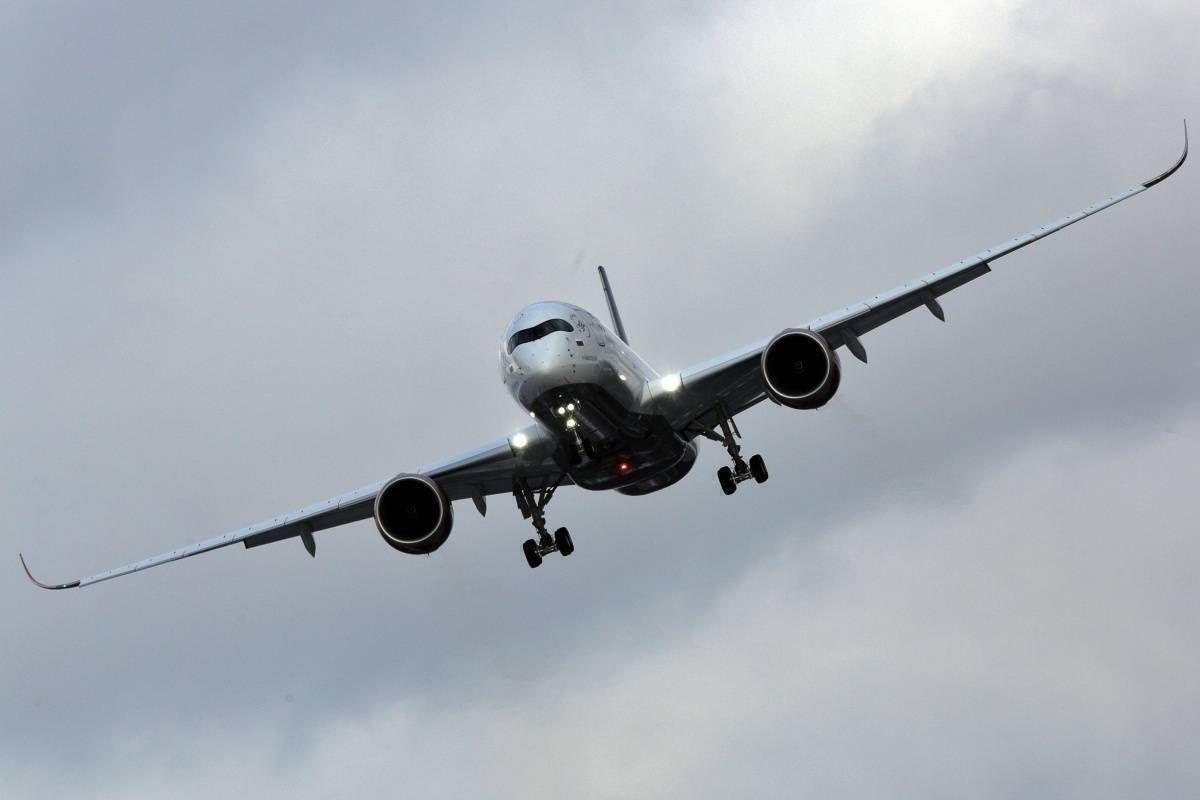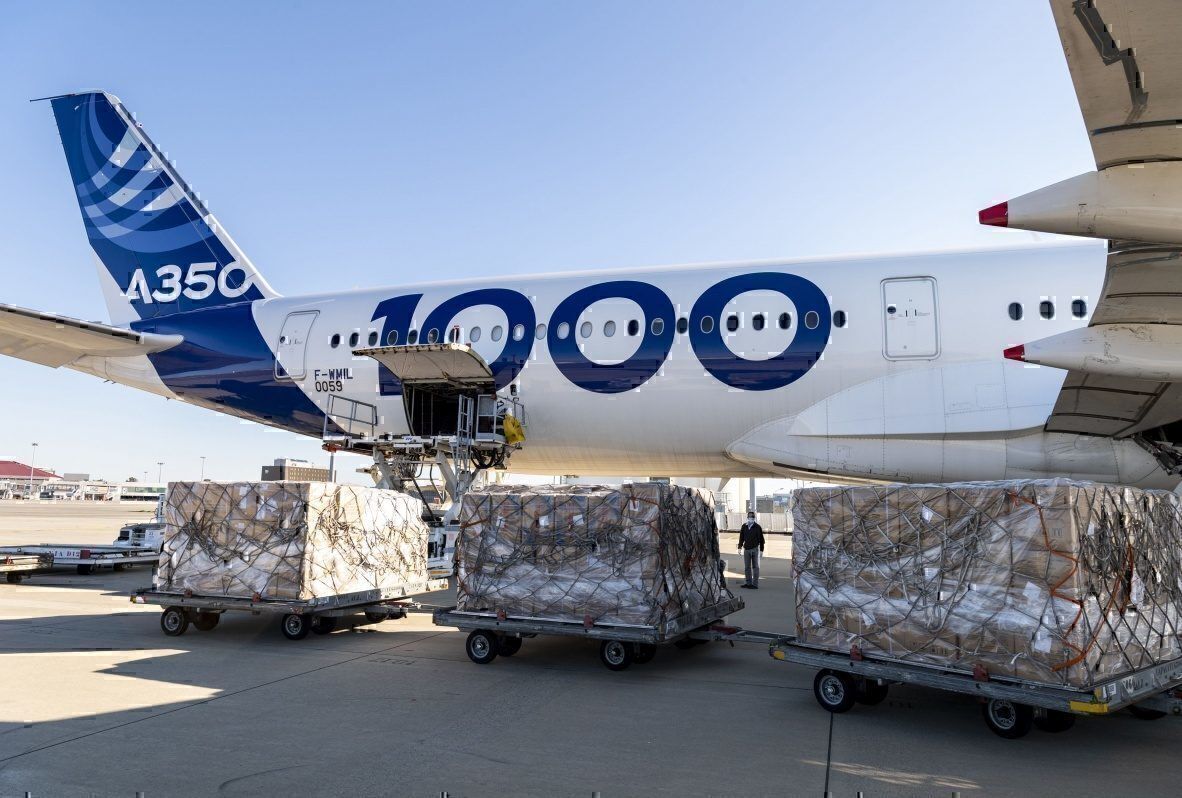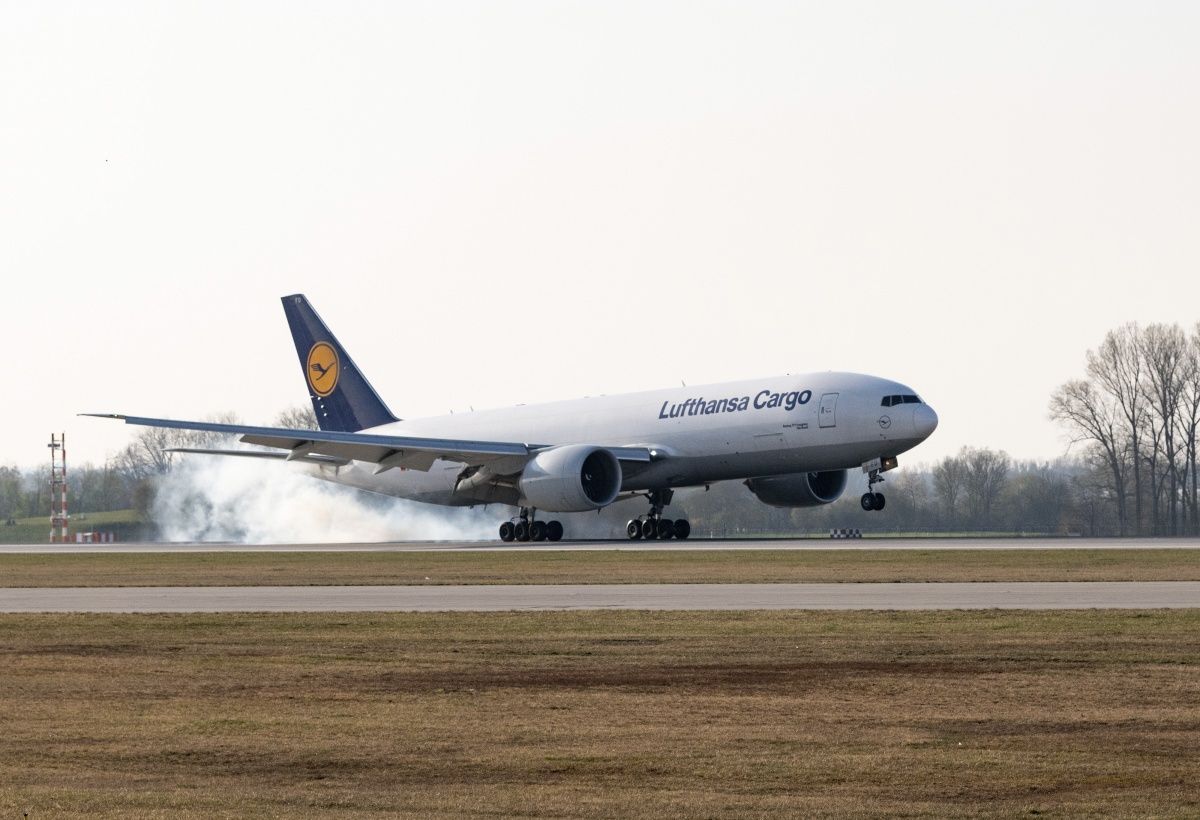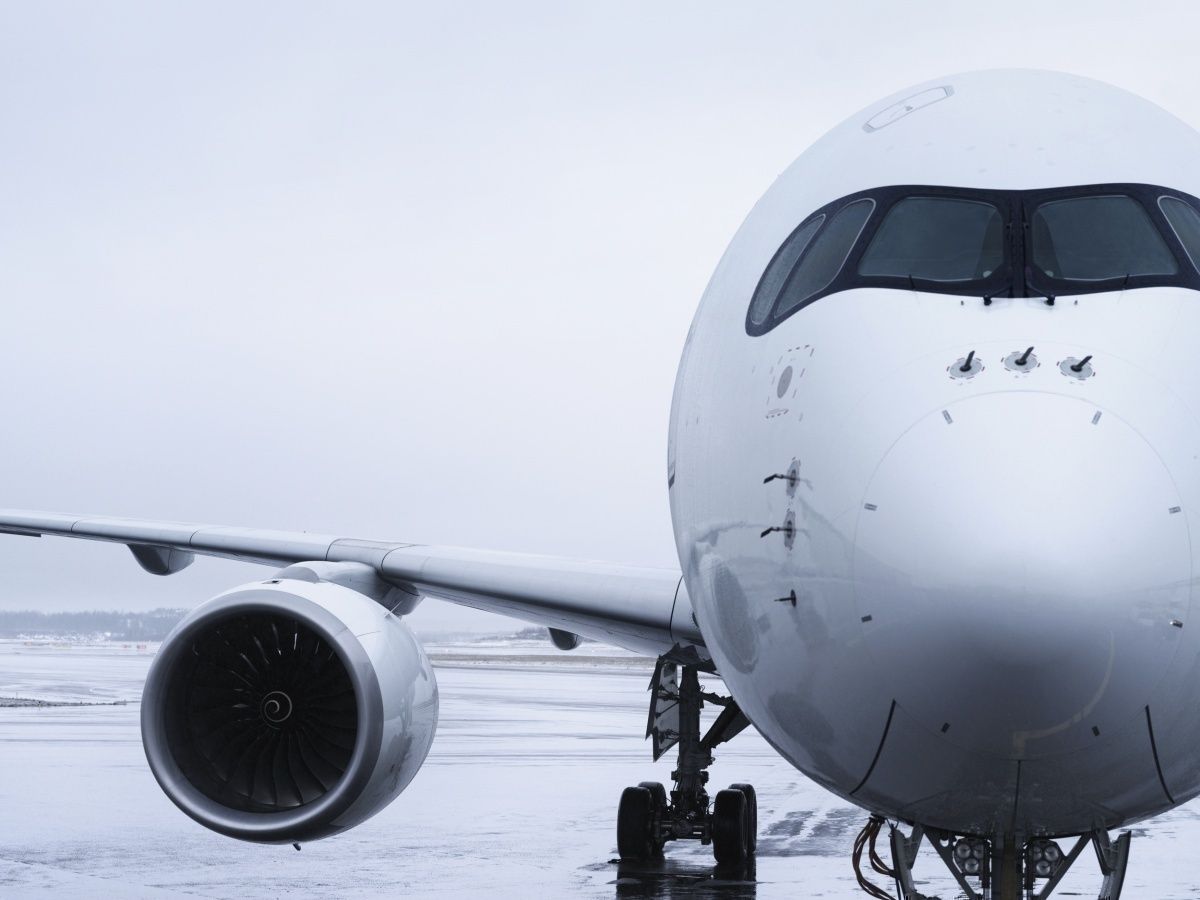With passenger traffic drying up, airlines are increasingly turning to cargo operations to keep some revenue flowing. In fact, Chinese airlines are on the verge of ordering more widebody freighters to keep cargo moving. With Boeing dominant in the widebody cargo space, could Airbus cash in with a timely release of an A350 freighter?
In these strange and uncertain times, we’ve seen many passenger airlines turning to cargo to keep the world moving and maintain some form of income. While many airlines fly specific cargo fleets, numerous carriers have resorted to flying goods on passenger planes, even in the cabins. Some have even removed the passenger seating to make way for more boxes.
With no end to the crisis in sight and passenger demand predicted to take some time to return, airlines realize the critical role they play in supplying goods around the world. It would seem that there has never been a better time for Airbus to jump into the game with its own large freighter.
The China factor
As reported by Will Horton in Forbes today, China is eyeing some aircraft purchases. While the bottom has dropped out of the market for passenger planes, Chinese airlines are reported to be looking for additional freight capacity.
In the widebody freight market, Boeing has no competition. This means that, with no other option on the table, airlines would be pushed to consider the 777F. However, if Airbus were to take the opportunity to unveil an A350 freighter right now, it could end up breaking the monopoly and cashing in on this newfound thirst for widebody freighters.
Horton states that the Civil Aviation Administration of China (CAAC) estimates around 60% of all mainland China’s cargo was carried in the holds of passenger planes last year. With fewer passenger planes flying, China is eyeing an increase in cargo capacity as the COVID pandemic spotlights the strategic importance of this industry.
An A350-1000F would outpace many of the popular Boeing models. Its capacity of 800m3 would give it a larger capacity than the 777F, which has 650m3, and although its payload is somewhat lower than the 777 and 747, its high fuel efficiency could make it an economical choice for load shifting.
Why hasn’t Airbus brought us an A350 freighter yet?
Currently, Airbus doesn’t offer anything ‘new’ for the freighter market that is larger than an A330. Its two in-production freighters are based on the A330 airframe, the A330-300P2F and the A330-900F. There are, of course, also the Belugas, although these are more specialist aircraft than regular cargo planes.
The last time Airbus attempted to enter the Boeing-dominated large freighter market was with its A380. The A380F would have been the largest commercial cargo plane that also operated as a passenger jet, but issues with its weight and lack of load capabilities meant it never got off the ground.
As such, Boeing has dominated the widebody freighter market for many years, with the 747-400F, the 747-8F and 777-200/300F all leading the way. But with the A350 passenger variant gaining in popularity, particularly in the Asian market, the door is wide open for Airbus to challenge Boeing’s monopoly.
What do you think? Should Airbus invest now in a cargo version of the A350? Let us know in the comments.




